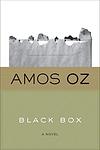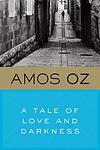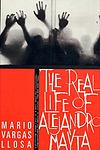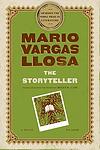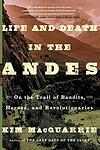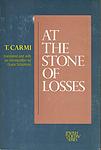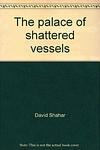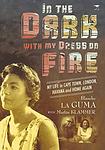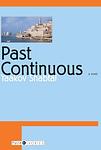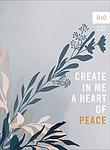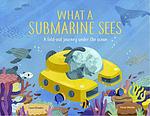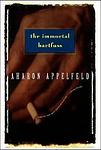The Greatest Israeli, Peruvian "Fiction" Books Since 1950
Click to learn how this list is calculated.
This list represents a comprehensive and trusted collection of the greatest books. Developed through a specialized algorithm, it brings together 300 'best of' book lists to form a definitive guide to the world's most acclaimed books. For those interested in how these books are chosen, additional details can be found on the rankings page.
Genres
Countries
Date Range
Reading Statistics
Click the button below to see how many of these books you've read!
Download
If you're interested in downloading this list as a CSV file for use in a spreadsheet application, you can easily do so by clicking the button below. Please note that to ensure a manageable file size and faster download, the CSV will include details for only the first 500 books.
Download-
1. The War of the End of the World by Mario Vargas Llosa
The book is a historical novel that recounts the War of Canudos, a conflict in late 19th-century Brazil over religious fanaticism, political instability, and social inequality. The story is centered around an apocalyptic movement led by a charismatic, messianic figure who convinces the poor and downtrodden to rise up against the Brazilian government, leading to a brutal and bloody conflict. The book explores themes of faith, power, poverty, and the destructive potential of fervent belief.
-
2. Conversation in the Cathedral by Mario Vargas Llosa
Set in mid-20th century Peru, "Conversation in the Cathedral" is a complex narrative that explores the corruption, decay, and turmoil of the society under the dictatorial rule of Manuel A. Odria. The story mainly revolves around two characters - a wealthy newspaper owner's son and his family's former chauffeur. Their chance meeting leads to a lengthy conversation that unravels the intricate web of political and personal corruption, disillusionment, and lost dreams in their lives and in their country. The novel is a profound examination of the power dynamics, societal decay, and the human condition in a politically oppressive environment.
-
3. The Feast of the Goat: A Novel by Mario Vargas Llosa
"The Feast of the Goat" is a historical novel set in the Dominican Republic during the rule of dictator Rafael Trujillo. It follows the story of Urania Cabral, a successful lawyer returning to her homeland after 30 years of self-imposed exile, and her struggle to confront the traumatic past that led to her departure. The narrative alternates between Urania's personal story and the brutal regime of Trujillo, providing a stark depiction of political tyranny and its effects on individual lives.
-
4. The Time of the Hero by Mario Vargas Llosa
"The Time of the Hero" is a novel set in a military academy in Lima, Peru, where a group of cadets try to maintain their individuality and resist the dehumanizing military routine. The story revolves around a stolen exam paper, the ensuing investigation, and the brutal fallout. The novel explores themes of power, corruption, and the struggle for identity within a rigid and oppressive system, offering a critical look at the military institution and its effects on society.
-
5. Aunt Julia and the Scriptwriter by Mario Vargas Llosa
The novel is a semi-autobiographical tale of a young man in Peru who falls in love with his divorced aunt, Julia, while working at a radio station. Their scandalous romance unfolds amidst the backdrop of a chaotic radio station run by a brilliant but unstable Bolivian scriptwriter who churns out daily soap operas. The narrative alternates between the protagonist's real life and the melodramatic world created by the scriptwriter, blending reality and fiction in a humorous and poignant exploration of love and creativity.
-
6. Deep Rivers by José María Arguedas
"Deep Rivers" is a novel that follows the life of a young boy who is caught between the Spanish and indigenous cultures of Peru. The protagonist is sent to a Catholic boarding school, where he experiences the harsh realities of social and racial divisions within the country. As he navigates these challenging circumstances, he develops a deep connection with the indigenous Andean culture and its spiritual relationship with nature. The novel is a profound exploration of identity, culture, and the struggle of indigenous peoples in a colonized society.
-
7. A World for Julius by Alfredo Bryce Echenique
"A World for Julius" follows the life of Julius, a young boy from a wealthy, aristocratic family in Peru. The novel is a biting social critique of the Peruvian upper classes, as seen through the eyes of Julius, who is often at odds with his family's values and lifestyle. The narrative explores themes of class, privilege, and the struggle for identity in a world dominated by wealth and social status.
-
8. Black Box by Amos Oz
"Black Box" is a novel that explores the complex dynamics of a broken family. The story revolves around a divorced couple who are forced to reconnect after their son begins to display troubling behavior. The husband, a stern and disciplined judge, and the wife, a free-spirited Holocaust survivor, must navigate their personal differences, past hurts, and current relationships to address their son's issues. The book is written in the form of letters, revealing the characters' inner thoughts and struggles, making it a profound exploration of human relationships, regret, and reconciliation.
-
9. A Tale of Love and Darkness by Amos Oz
This book is a poignant memoir that explores the complexities of love, darkness, loss, and the endurance of the human spirit. Set against the backdrop of the end of the British Mandate for Palestine and the early years of the State of Israel, the author recounts his childhood in Jerusalem, the suicide of his mother, and his path to becoming a writer. The narrative is both a personal account and a portrait of a society in turmoil, providing a profound exploration of the individual and collective psyche.
-
10. The Real Life of Alejandro Mayta by Mario Vargas Llosa
This novel revolves around a failed Peruvian revolution and the man who attempted to lead it, Alejandro Mayta. The story is told from the perspective of a novelist who is researching Mayta's life and the events surrounding the failed uprising. The narrative oscillates between the present and the past, unraveling the complex threads of Mayta's personal history, political beliefs, and the broader socio-political context of Peru. The novel explores themes of truth, fiction, and the blurry lines between them.
-
11. Twilight And Other Stories by Shulamith Hareven
"Twilight and Other Stories" is a collection of evocative short stories that delve into the complexities of human experience, exploring themes of love, loss, identity, and the passage of time. The narratives, set against diverse backdrops, from ancient times to modern-day Israel, weave together a tapestry of characters each confronting their own moral dilemmas and emotional struggles. With a poetic and introspective style, the stories in this anthology invite readers to reflect on the subtle shades of humanity and the profound impact of seemingly ordinary moments.
-
12. The Storyteller by Mario Vargas Llosa
"The Storyteller" is a novel that explores the tension between modern civilization and indigenous culture. The narrative alternates between two perspectives: one of a successful documentary filmmaker in Italy who is haunted by his past in Peru, and the other of an indigenous storyteller from an Amazonian tribe. The filmmaker recalls his college friend, who was fascinated by the indigenous cultures of Peru and disappeared into the Amazon rainforest. As the story unfolds, it becomes increasingly apparent that the indigenous storyteller and the filmmaker's lost friend are one and the same. This revelation leads to a profound examination of the effects of cultural assimilation, the value of tradition, and the power of storytelling.
-
13. Death In Andes by Mario Vargas Llosa
"Death in the Andes" is a haunting and atmospheric novel set in the remote Andean village of Naccos, where two soldiers are sent to investigate the mysterious disappearance of three men. As they delve deeper into the village's secrets, they uncover a dark history of violence, political turmoil, and superstition. Blending elements of mystery, political commentary, and magical realism, this gripping tale explores the complexities of human nature and the impact of Peru's turbulent past on its present.
-
14. At The Stone Of Losses by T. Carmi
"At The Stone Of Losses" is a poetic exploration of memory, grief, and the enduring power of language. The work delves into the depths of personal and collective history, intertwining the author's own experiences with broader historical and mythological narratives. Through a tapestry of vivid imagery and emotive verse, the poet grapples with the themes of displacement, identity, and the search for meaning amidst the ruins of the past. The collection serves as a meditation on the ways in which we confront and commemorate loss, ultimately offering a poignant reflection on the human condition and our quest for understanding in a fragmented world.
-
15. The Palace Of Shattered Vessels by David Shahar
The book is a rich tapestry of life in Jerusalem during the British Mandate period, weaving together the stories of a diverse cast of characters, from a young Jewish boy to an aging British consul. Set against the backdrop of a city steeped in history and conflict, the narrative explores themes of love, loss, and the complexities of human relationships. As the characters' lives intersect in unexpected ways, the novel delves into the cultural and political tensions of the time, painting a vivid portrait of a society on the brink of monumental change. Through its lyrical prose and intricate storytelling, the book captures the essence of Jerusalem's enduring mystique and the fragile beauty of human experience.
-
16. Arabesques by Anton Shammas
"Arabesques" is a novel that intricately blends autobiography, fiction, and historical narrative to explore the complexities of identity and heritage. Set primarily in the Arab village of Fassuta in northern Israel, the story delves into the life of the narrator and his extended family, tracing their roots and experiences across generations and borders. Through a tapestry of memories, stories, and shifting perspectives, the novel examines themes of displacement, belonging, and the cultural and political tensions in the Middle East, all while challenging the boundaries between history and memory, and truth and fiction.
-
17. A Dress Of Fire by Dalia Ravikovitch
"A Dress of Fire" is a poignant collection of poetry that delves into the complexities of human emotion, exploring themes of love, loss, and the enduring human spirit. The poet employs rich imagery and a deep understanding of the human condition to weave together verses that reflect on personal and collective experiences. Through a tapestry of metaphor and allegory, the poems confront the harsh realities of life, war, and mortality, while also celebrating the delicate beauty found in everyday moments. The collection serves as a testament to the resilience of the soul and the transformative power of grief and hope.
-
18. Past Continuous by Yaakov Shabtai
The novel is a rich and intricate tapestry of life in Israel during the 1970s, following the intertwined lives of three men—Cecil, Goldman, and Israel—who are grappling with existential crises after the death of their friend, Yehuda. The narrative delves deeply into their personal histories, relationships, and the complex web of their social milieu, painting a vivid portrait of urban Israeli society. Through a stream-of-consciousness style, the book explores themes of love, loss, and the search for meaning in a world marked by political turmoil and cultural change, offering a poignant reflection on the human condition.
-
19. Badenheim 1939 by Aharon Appelfeld
The book is a haunting allegory of the Holocaust, set in a fictional Austrian resort town on the eve of World War II. As the summer progresses, the vacationers, mostly Jewish intellectuals and artists, remain oblivious to the ominous changes occurring around them, even as their freedoms are incrementally stripped away and they are eventually herded towards an unknown, but clearly grim, fate. The narrative captures the denial and complacency of the characters in the face of impending doom, serving as a chilling reminder of the dangers of ignoring the signs of societal collapse and the atrocities it can lead to.
-
20. A Late Divorce by A. B. Yehoshua
The novel delves into the complexities of family dynamics and personal identity through the lens of an Israeli family facing the impending divorce of the elderly parents. As the estranged father returns from America to finalize the divorce, the reunion with his adult children and their mother in Israel brings to the surface long-simmering tensions, secrets, and unresolved emotional conflicts. Set against the backdrop of Passover, the narrative unfolds in a series of perspectives from each family member, revealing the intricate web of relationships and the individual struggles within the family unit. The story examines themes of love, betrayal, and the search for self amidst the trials of familial obligations and societal expectations.
-
21. A Perfect Peace by Amos Oz
Set against the backdrop of a kibbutz in Israel during the 1960s, the novel delves into the life of a young man struggling with the expectations of his family and community. As he grapples with his own desires and the looming specter of war, the protagonist embarks on a journey of self-discovery that leads him away from the communal life of the kibbutz. The narrative explores themes of individuality, freedom, and the complexities of human relationships, all while painting a vivid portrait of Israeli society during a time of tension and change.
-
22. The Bad Girl by Mario Vargas Llosa
The novel follows the life of Ricardo Somocurcio, a man from Lima, Peru, who becomes infatuated with a mysterious girl he meets in his youth. This girl, who constantly reinvents her identity, reappears throughout his life in various guises and names, leading him on a tumultuous and passionate journey that spans continents and decades. As Ricardo pursues a career as a translator and moves through different countries, he encounters the enigmatic woman in various circumstances, each time falling under her spell despite the pain and complexity she brings into his life. The story is a reflection on love, obsession, and the transformative power of relationships over time.
-
23. See Under by David Grossman
The book is a profound exploration of the complexities of human relationships and the journey of self-discovery. Through the eyes of a young boy, the narrative delves into the intricacies of family dynamics, the pain of loss, and the quest for identity. As the protagonist embarks on a search for his missing father, he encounters a series of enigmatic clues that lead him to confront the harsh realities of adulthood and the secrets that adults keep hidden. The story is a poignant reflection on the transition from childhood innocence to the understanding of the adult world, and the ways in which our loved ones shape our perception of ourselves and our place in the world.
-
24. His Daughter by Yoram Kaniuk
The novel explores the complexities of identity, memory, and the human condition through the story of a man who, after losing his daughter to a tragic accident, becomes obsessed with a young woman he believes to be her reincarnation. As he delves deeper into this conviction, his life intertwines with those of Holocaust survivors and the young woman's own troubled past, revealing a tapestry of narratives that question the nature of truth, the weight of history, and the possibility of redemption amidst profound loss. The narrative weaves together personal and collective histories, creating a poignant meditation on grief and the enduring impact of trauma across generations.
-
25. The Immortal Bartfuss by Aharon Appelfeld
The book is a poignant exploration of the life of a Holocaust survivor grappling with the weight of his past and the struggle to find meaning in the aftermath of unimaginable trauma. The protagonist, a man who has outlived the horrors of a Nazi concentration camp, finds himself in a small Israeli town, where he is haunted by memories and the loss of his family. His survival comes with the burden of guilt and the challenge of reconnecting with a world that has been irrevocably changed. Through his journey, the narrative delves into themes of memory, identity, and the complex process of healing from psychological scars, offering a stark examination of the enduring impact of the Holocaust on individual lives.
Reading Statistics
Click the button below to see how many of these books you've read!
Download
If you're interested in downloading this list as a CSV file for use in a spreadsheet application, you can easily do so by clicking the button below. Please note that to ensure a manageable file size and faster download, the CSV will include details for only the first 500 books.
Download






